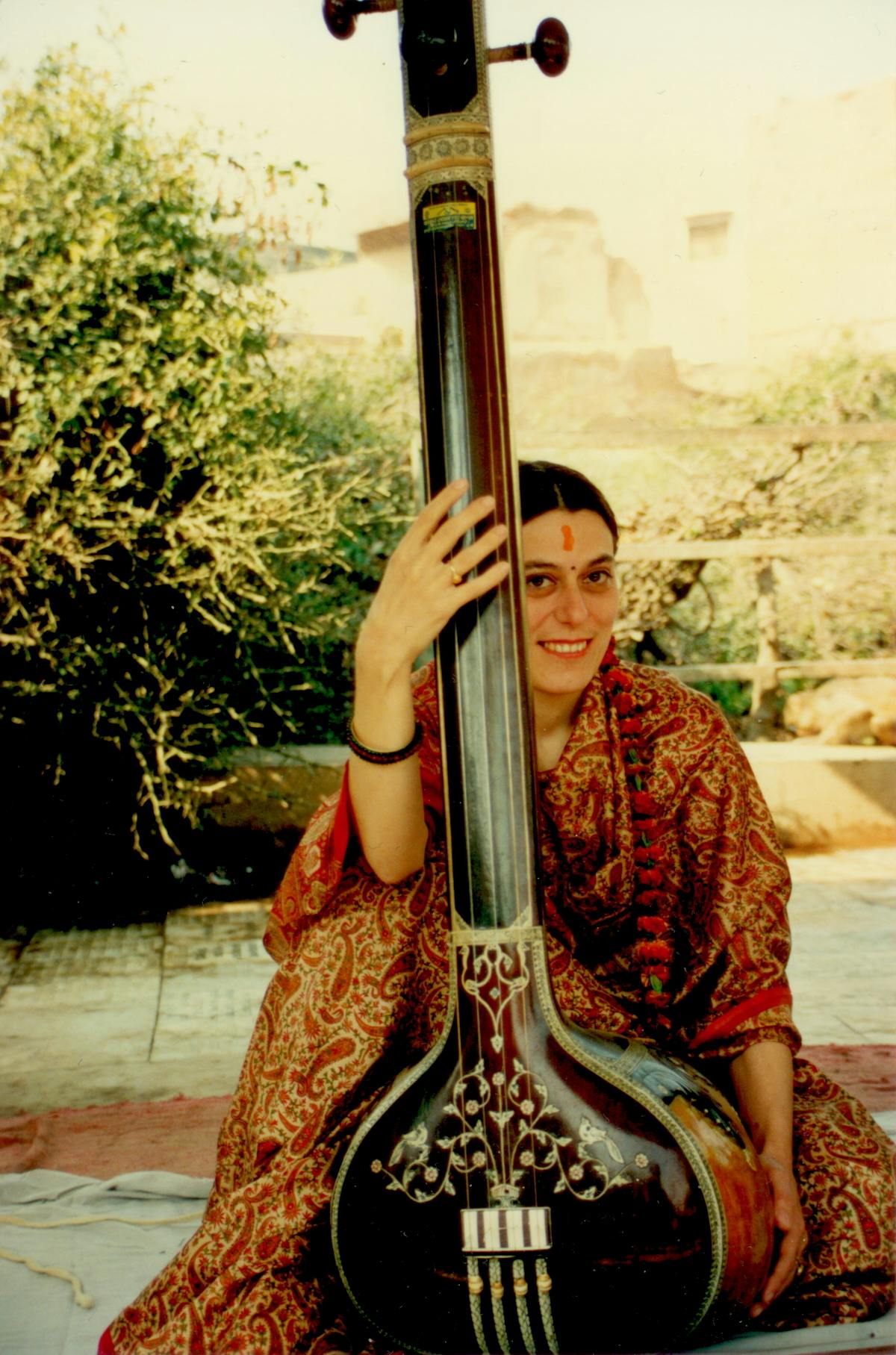Amelia Cuni occupied a unique position between traditional Indian music and Western contemporary performing arts. For more than 10 years, she lived in North India, studying Dhrupad (the most ancient genre of classical Indian singing) with renowned masters such as R. Fahimuddin Dagar, Bidur Mallik, and Dilip Chandra Vedi, as well as Kathak dance and Pakhawaj drumming. She received a three-year scholarship from the Indian government.
Since 1989, she performed with international ensembles in both traditional and experimental projects. Terry Riley, Maria de Alvear, Roland Pfrengle, and Chico Mello, among others, composed for her voice. Her multimedia performance Ashtayama – Song of Hours was presented at several festivals worldwide. Her interpretation of John Cage’s SOLO 58 (18 microtonal ragas from the Song Books, 1970) was a co-production with various European and American new music venues and premiered in Berlin at the MaerzMusik Festival in 2006. She collaborated with artists from various artistic backgrounds, including minimalist-experimental wind player Werner Durand. Her music was featured on numerous CD and LP productions and radio broadcasts. She presented her own works across Europe, Asia, and North America, earning appreciation from audiences and critics alike. She gave many seminars and taught Indian singing at the Vicenza Conservatory in Italy from 2000 to 2015. She was based in Berlin.
She was awarded several Artist-in-Residence grants and published articles and essays. With her own works, she participated in international festivals in the UK, Germany, Italy, France, Switzerland, Belgium, Holland, Hungary, Poland, Spain, Portugal, India, China, Brazil, Canada, and the USA.
Her rich body of work has left a lasting mark on both the Indian classical music and contemporary experimental music scenes. Cuni’s ability to transcend cultural and artistic boundaries has made her a revered figure in the world of performance arts, and her legacy continues to inspire artists around the globe.
